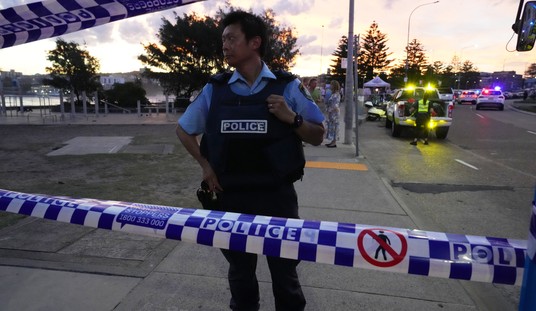As the case of Yasser Arafat shows, the Nobel Peace Prize Committee does not revoke laureates’ prizes even when they go astray, turning from peacemakers to promoters of violence. If that was not the case, members of the committee would have been well advised to keep a watchful eye on the statements coming from 2007 Nobel Peace Prize recipient Al Gore. Last month, in a speech before the Clinton Global Initiative, he called for young people to engage in “civil disobedience to prevent the construction of new coal plants that do not have carbon capture and sequestration.” This was not the first time such calls came from the man who used to be the “next president of the United States.” Last year he told New York Times columnist Nicholas Kristof: “I can’t understand why there aren’t rings of young people blocking bulldozers and preventing them from constructing coal-fired power plants.”
Gore’s call to arms is typical of his environmental conduct: asking others to do what he himself wouldn’t — sacrifice. His massive carbon footprint, his frequent use of private jets, and his inflated electricity bill — more than 20 times the national average — have all been widely reported. Calling for young climate activists to engage in unlawful, albeit non-violent, action takes the hypocrisy to a whole new level. Unlike the symbol of non-violence, Mahatma Gandhi, who led millions of freedom seekers and who spent years in prison for his convictions — Gandhi was nominated for the Nobel Peace Prize five times but was never awarded — or civil rights activists who through their personal sacrifice won equality for blacks in South Africa and the U.S., Gore prefers to send young activists to chain themselves to bulldozers and potentially spend their best months, if not years, in prison while he himself continues to tour the world and attend carbon-neutral Hollywood parties.
Gore’s anti-coal campaign is a threat to our economic well-being as it inspires activists all over the world to deny working families the cheapest source of base load electricity. Earlier this month a British court cleared six Greenpeace activists of causing more than $50,000 of criminal damage to a coal-fired power plant. In the U.S., anti-coal activists have derailed scores of coal-fired power plant projects in 2007 alone. For the greens this is stunning success, but for the rest of us it is trouble in the making.
Despite Gore’s challenge to America in a July speech to commit to producing 100 percent of our energy from renewable sources in 10 years, over 60 percent of U.S. electricity is still made from coal while non-hydro renewable energy barely constitutes two percent. The much-hyped carbon-capture and sequestration, the precondition to Gore’s tolerance of coal, is nowhere on the horizon. Just this year, the Department of Energy scrapped its flagship carbon-capture project called FutureGen, admitting that even experimental plants capable of sequestering carbon dioxide will not be operational before 2015. According to the National Energy Technology Laboratory, today’s commercially available capture and storage technologies will add approximately 80 percent to the cost of electricity for a new pulverized coal plant, and about 35 percent to the cost of electricity for a new advanced gasification plant. Meanwhile U.S. electricity demand is growing by leaps and bounds, and in the absence of new power-generating capacity, large parts of the U.S. including New England, New York, Texas, and California are likely to experience brownouts in the next few years. So when your AC goes off in the middle of the summer or when your energy costs skyrocket due to utilities’ shift to more expensive power sources, remember Al Gore.
The biggest problem with Gore’s call for civil disobedience is that it clears the way to violence. Civil disobedience is somewhat like Iran’s pursuit of nuclear power “for peaceful purposes.” What starts peacefully can quickly change its face, especially when the inspiration comes from messianic and highly charismatic leaders. For years, radical elements in the environmental movement have tested the borders of permissibility. Some, like the Earth Liberation Front, have crossed the lines and become engaged in full-fledged eco-terrorism. The FBI considers eco-terrorism as one of the greatest domestic threats. Last year it reported 180 ongoing eco-terror investigations and over the last several years has tied them to some 1,800 criminal acts, one of which was the torching of luxury homes in an affluent Seattle suburb. “Despite the gains law enforcement has made, it just takes one person to reignite the movement,” retired investigator Bob Holland said to Fox News. This person can easily be Al Gore.
The call for unlawful action and disruption of civil order by a former vice president should be viewed for what it is — a threat to our democracy and rule of law. Environmental leaders and our political class should repudiate Gore’s calls and encourage their cohort to restrict their efforts on behalf of the planet to the courtrooms and in the corridors of Congress, not chained to bulldozers and destroying smokestacks.









Join the conversation as a VIP Member